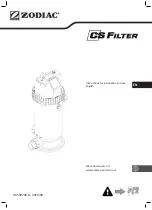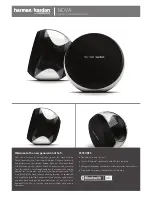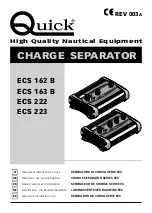
51
Poor Product Water Quality
With any product water quality issue, you must ensure accurate calibration if you are using a
salinity meter. For general quality evaluation, your taste is always good enough.
Membranes are not an exact science and two identical systems can have different product
quality. World health standards deem water of up to 1000 PPM of total dissolved solids ac-
ceptable for drinking. We consider any thing below 750 PPM acceptable but not ideal, and
anything below 500 PPM excellent. Factors that could affect water quality are addressed be-
low.
LOW SYSTEM FLOW OR PRESSURE will equate to lower product quality (higher PPM).
Ventura systems, which have a higher feed to output pressure ratio (See nominal
pressures under Flow Test, page 55), as well as a higher feed flow/membrane area
ratio, will produce water in the 150-200 PPM range.
DAMAGE TO THE MEMBRANE by chlorine contamination. Flushing the system with chlo-
rinated water will irreparably damage the membrane. Charcoal filters are used to ab-
sorb any chlorine which might be present in flush water. They must be of proper
specification to be suitable. See page 56. There is no test for chlorine damage except
the process of elimination of other causes.
DIRTY OR SCALED membranes. A dirty (foreign material), scaled (mineral deposits), or
contaminated (bacterial growth) membrane can result in poor water quality and ab-
normal operating pressures. If operating pressures are above normal, then cleaning is
indicated. If the system pressures are within operating normal range, cleaning may
have little result. Avoid cleaning as a diagnostic tool. Low water quality after storage
with propylene glycol can usually be remedied by extended flushing or an SC-2 clean-
ing. (See pages 44-45 and 48.)
MECHANICAL LEAKAGE within the membrane pressure vessel. This is an unlikely but pos-
sible cause of poor water quality. A pinched or damaged O-ring within the pressure
vessel, a scratch on the product tube on the membrane, a scratch within one of the
end caps, or a seal fouled by contamination could allow sea water into the product
water.
If system flow (product plus brine) is 1.5 GPM or above, the membrane is clean, the product
flows are consistent with the system flow and the water quality is still not acceptable, then
replacement of the membrane is indicated.
Summary of Contents for Ventura 150T MPC
Page 2: ...2 ...
Page 4: ...4 ...
Page 7: ...7 Installation ...
Page 8: ...8 ...
Page 14: ...14 ...
Page 28: ...28 ...
Page 29: ...29 Operation ...
Page 30: ...30 ...
Page 38: ...38 ...
Page 39: ...39 Maintenance Storage and Troubleshooting ...
Page 40: ...40 ...
Page 60: ...60 ...
Page 61: ...61 MPC 5000 Programming and Controls ...
Page 62: ...62 ...
Page 72: ...72 ...
Page 74: ...74 ...
Page 75: ...75 Exploded Views and Part Numbers ...
Page 76: ...76 ...
Page 84: ...84 Parts HP CYL 3 4R ...
Page 85: ...85 PL MTS 3 8X1 2S HP CYL SST HP CYL CCA SO HPP ECCB HP CYL EC HP CYL R HP CYL PT Parts ...
Page 86: ...86 ...
















































